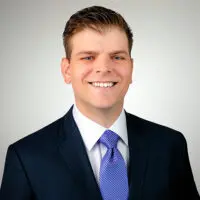Publication
Feed It Onward Turns Food Waste Into Opportunity
By Patrick J. Paul, John Habib, and Sukhmani Singh
On September 5, 2025, the U.S. Environmental Protection Agency (EPA) launched Feed It Onward — a new national initiative designed to reduce food waste, strengthen food security, and support communities across the country — demonstrating EPA’s growing recognition that food waste is not just an environmental issue but an economic and social challenge with far-reaching consequences.
The Scale of the Problem
Food waste in the United States is staggering. According to a 2025 EPA report titled, “Estimating the Cost of Food Waste to American Consumers,” Americans collectively throw away more than 133 billion pounds of food annually. That translates into over $400 billion in lost value and makes food waste the single largest component of municipal landfills. On an individual level, the cost is equally striking – consumers lose an estimated $728 per person each year, or nearly $3,000 for a family of four. These losses represent roughly 11 percent of household food spending.
Beyond the financial implications, wasted food carries environmental and human costs. Decomposing food in landfills generates methane – a greenhouse gas significantly more potent than carbon dioxide. At the same time, millions of American households are food insecure, highlighting the disconnect between food supply and food access.
A Voluntary National Platform
Feed It Onward is a voluntary program connecting farms, restaurants, grocery stores, food brands, military bases, and nonprofits already engaged in “food recovery efforts” to minimize food waste. By providing a national platform, EPA hopes to amplify success stories, promote collaboration, and inspire replication across communities.
The program reflects the values of America’s 250th anniversary celebration – generosity, grit, and community – by showcasing how everyday Americans are turning food waste into opportunity. Its launch event included a tangible example – Frey Farms delivered a truckload of fresh produce that would have otherwise gone to a landfill, providing meals for military families at Scott Air Force Base.
Legal and Policy Context
EPA has long emphasized waste reduction and sustainable materials management. While Feed It Onward does not create new legal mandates, it sits within a larger policy landscape where federal, state, and local governments regulate waste disposal, landfill management, and greenhouse gas emissions.
The voluntary nature of the initiative makes it more of a public-private partnership platform than a regulatory program. However, businesses and institutions that participate may benefit indirectly from reduced disposal costs, enhanced compliance with state-level waste diversion requirements, and improved ESG performance.
Aligning with EPA’s national platform can also provide reputational benefits. For companies navigating tightening state food waste laws – such as mandatory organics recycling requirements in California and New York – voluntary engagement with Feed It Onward can complement compliance efforts and demonstrate proactive corporate responsibility.
Opportunities for Stakeholders
- Farms and food businesses: donation programs can help reduce waste disposal costs, support communities, and build goodwill
- Nonprofits and food banks: national visibility and potential new partnerships expand their reach
- Military and public institutions: demonstrating leadership in food recovery aligns with community values and operational efficiency
- Families and individuals: learning from best practices can reduce household food waste and stretch budgets
Feed It Onward underscores the intersection of environmental protection, economic efficiency, and community well-being. By offering a national platform for voluntary collaboration, EPA is positioning the program as both a celebratory initiative for America’s 250th anniversary and a practical response to one of the country’s most persistent waste challenges.
For businesses, nonprofits, and communities, participation represents not only an opportunity to reduce waste but also to strengthen relationships, improve environmental outcomes, and enhance resilience. While voluntary in design, the program may shape the broader policy conversation around food waste, sustainability, and corporate responsibility in the coming years.
About Snell & Wilmer
Founded in 1938, Snell & Wilmer is a full-service business law firm with more than 500 attorneys practicing in 17 locations throughout the United States and in Mexico, including Phoenix and Tucson, Arizona; Los Angeles, Orange County, Palo Alto and San Diego, California; Denver, Colorado; Washington, D.C.; Boise, Idaho; Las Vegas and Reno-Tahoe, Nevada; Albuquerque, New Mexico; Portland, Oregon; Dallas, Texas; Salt Lake City, Utah; Seattle, Washington; and Los Cabos, Mexico. The firm represents clients ranging from large, publicly traded corporations to small businesses, individuals and entrepreneurs. For more information, visit swlaw.com.



